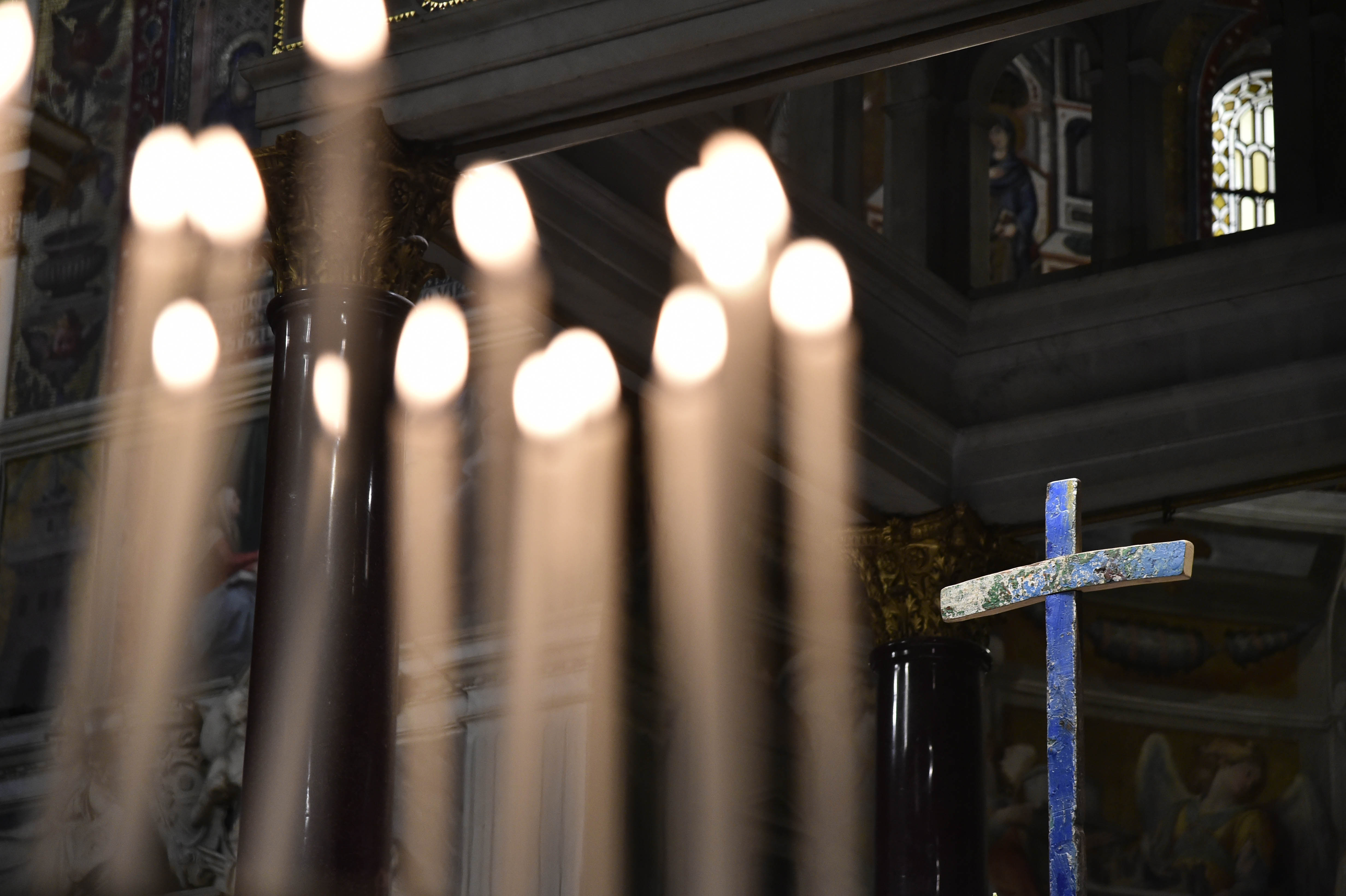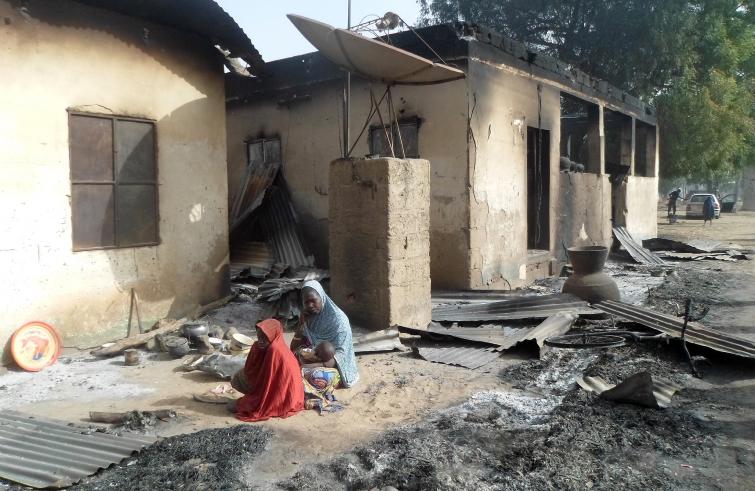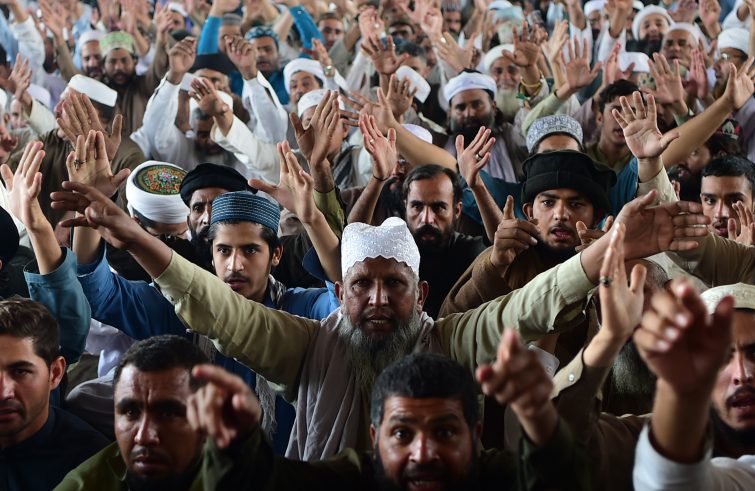2018 REPORT
Systematic intimidation, serious violations of human rights, violence and abuse afflicting almost 300 million Christians in the world. The figures are contained in the 14th Report on Religious Freedom, published by Aid to the Church in Need (ACN), which was presented in Rome today. Other religious minorities are also victim of oppression while the Western world turns a deaf ear or remains indifferent to the requests for help coming from Iraqi Christians.

Almost 300 million Christians in the world – one in seven – are persecuted in the Country where they live and continue being the religious group suffering the most serious cases of human rights violations, abuse and violence. This is what emerges from the 14th Report on Religious Freedom by Aid to the Church in Need – https://acs-italia.org/> presented November 22 in Rome, at the Italian Embassy to the Holy See. The Report, released in six languages, will simultaneously be presented in 23 ACN seats worldwide.

In the period under review – June 2016/June 2018 – religious freedom violations in many Countries have significantly increased. 38 Countries were identified as theatres of “serious cases of extreme violations.” Of these, 21 were placed in the top ‘Persecution’ category: Afghanistan, Saudi Arabia, Bangladesh, Burma, China, North Korea, Eritrea, India, Indonesia, Iraq, Libya, Niger, Nigeria, Pakistan, Palestine, Syria, Somalia, Sudan, Turkmenistan, Uzbekistan and Yemen, the remaining 17 in the ‘Discrimination’ category. These are: Algeria, Azerbaijan, Bhutan, Brunei, Egypt, Russian Federation, Iran, Kazakhstan, Kyrgyzstan, Laos, Maldives, Mauritania, Qatar, Tajikistan, Turkey, Ukraine and Vietnam. In 17 of these 38 Countries the situation has grown worse. The situation remains unvaried –i.e. extremely serious – in North Korea, Saudi Arabia, Nigeria, Afghanistan and Eritrea where persecution “manifests its cruellest face”,
Alfredo Mantovano and Alessandro Monteduro, respectively President and Director of ACN-Italy, wrote in the introduction.
The most worrying trends highlighted in the Report include
the emergence of a form of ultra-nationalism that considers faith minorities a threat to the State,
an exasperation of nationalism that shows hostility against religious groups. This phenomenon was registered especially in India, China, North Korea, Pakistan, Myanmar. Violence against Christians in India, mainly by hard-line Hindu nationalist groups, have almost doubled – from 358 in 2016 to 736 in 2017. Minorities are accused “as a threat to the unity of the Country”, recently declared one Indian MP. In China, ultra-nationalism is manifested with the “State’s general hostility against all faiths.” Restrictive measures adopted by President Xi Jinping’s regime include the ban on the online sale of the Bible. It is estimated that 1,500 to 1,700 churches were destroyed between 2014 and 2016. In North Korea, where religious freedom is comprehensively denied by the state, faith groups are perceived to be a threat to “the personal cult” of the Kim dynasty and of the regime, while thousands of Christians are estimated to be detained in prison camps. In Pakistan was registered intensifying opposition to proposed changes to the country’s controversial Blasphemy Laws. The situation of faith minority groups is equally critical in Eritrea, Iran, Tajikistan and Turkmenistan. In Myanmar, from September 2017, almost 700 thousand Rohingya Muslims fled to Bangladesh. The crisis was described as a “text book ethnic cleansing” by the United Nations High Commissioner for Human Rights. In Turkey, President Recep Tayyip Erdogan’s nationalist agenda has asserted Sunni Islam.

While “Islamist extremism has been pushed back in some regions, in others it has expanded”, Mantovano and Monteduro remarked. The military defeat of Daesh in Iraq and a large of part of Syria “is a great opportunity”, but there is a risk of underestimating the threat that remains ever-present.” For the two ACN officials,
Daesh’s military defeat doesn’t necessarily imply its disappearance as a Jihadi movement.
Meanwhile, other militant Islamic movements have expanded in Africa, the Middle East and Asia. In Nigeria Boko Haram seems to have conceded defeat, but acts of violence against Christians by militant Islamist Fulani herdsmen have increased. Niger is encircled by various Islamist militant groups: this is where missionary Father Pierluigi Maccalli was recently abducted. Islamist fundamentalist groups are active also in Indonesia. Three churches in the city of Surabaya were attacked on 13th May 2018 by suicide bombers, killing 13 people, but Buddhists and Shiite Muslims are also under attack. 22 people were killed in a terror attack in Bangladesh. The situation of the Christian community in Palestine is dramatic, points out the Report.

In the last six years, Christians in Gaza have decreased by 75%: from about 4,500 to 1,000.
In the period 2016 – 2018 five deadly attacks were carried out in Egypt. The last one past November 2 against the Coptic Christians pilgrim bus in Minya.
Another scourge suffered by the Egyptian Christian community is
the abduction and forced conversion to Islam of Christian adolescents, girls and adult women.

At least seven girls were abducted in April 2018 alone. And every year approximately 1000 Christian and Hindu girls in Pakistan suffer the same fate.

Europe registers a rise in anti-Semitism, states the Report, highlighting the upsurge in terror attacks – “also motivated by religious hatred”- in the Western world in the period 2016-2018, and especially in Europe, which demonstrated that “the threat posed by extremism has now become universal, imminent and ever-present.” Finally, the ACN Report highlights the “barrier of indifference” behind which “the suffering of entire communities of religious minority groups goes largely unnoticed”, ignored “by a secularised Western world.” In fact, most governments of Western Countries failed to provide “the necessary assistance” to “communities of displaced people who wish to return to their respective Countries they were forced to flee from.” Past June 25,650 Christians had returned to the town of Qaraqosh in the Nineveh Plains. “This represented almost 50 percent of the total number of people living in Qaraqosh in 2014.” However, the Report points out, this work of rehabilitation has mainly been done by charities and Church organisations. “Had they not provided this assistance, the Christian community in the region could have vanished.” ACN denounced in clear terms that:
“Western governments, to whom appeals for urgent assistance were made, badly let down the Christian and Yazidi communities concerned, recognized as victims of genocide”